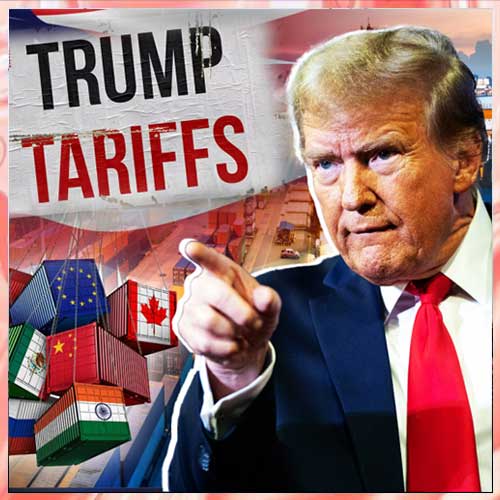Breaking News

While the US has placed tariffs up to 26% on Indian goods, they are lower than those on many other countries suggesting India will gain importance in global trade, especially as manufacturing moves away from China.
India stands to gain from recent changes in US tariff policy, according to a report by Ventura Securities. While the United States has imposed tariffs as high as 26% on certain Indian goods, the rates are notably lower than those placed on many of its other global trade partners. This indicates a more favorable shift in US-India trade relations and suggests that India is emerging as a key player in global trade, especially as companies look to diversify manufacturing away from China.
The decision to impose relatively moderate US tariffs on Indian products underscores India’s growing importance in the global supply chain. This strategic positioning may give India an export advantage, as manufacturers and businesses seek alternatives to China for production and sourcing. As a result, India is likely to see long-term benefits in terms of economic growth and increased foreign investment.
Ventura Securities also pointed out that the tariff changes were largely anticipated by equity markets, which had already priced in the expected impact. Interestingly, only about half of the proposed counter-tariffs were actually implemented, reflecting a conscious attempt by the US to keep trade negotiations open. This approach hints at a desire for cooperation rather than conflict in managing global trade tensions.
The move also signals a recalibration of US trade policy, which aims to realign supply chains without completely severing ties with key partners like India. The emphasis appears to be on strengthening India-US economic ties, encouraging trade and investment without escalating friction.
As India continues to expand its manufacturing capabilities and enhance trade frameworks, these favorable developments in US-India trade could further fuel India’s economic growth. The current trend supports the view that India is well-positioned to be a central figure in the evolving global trade landscape, benefiting from both strategic diplomacy and shifting economic realities.
The decision to impose relatively moderate US tariffs on Indian products underscores India’s growing importance in the global supply chain. This strategic positioning may give India an export advantage, as manufacturers and businesses seek alternatives to China for production and sourcing. As a result, India is likely to see long-term benefits in terms of economic growth and increased foreign investment.
Ventura Securities also pointed out that the tariff changes were largely anticipated by equity markets, which had already priced in the expected impact. Interestingly, only about half of the proposed counter-tariffs were actually implemented, reflecting a conscious attempt by the US to keep trade negotiations open. This approach hints at a desire for cooperation rather than conflict in managing global trade tensions.
The move also signals a recalibration of US trade policy, which aims to realign supply chains without completely severing ties with key partners like India. The emphasis appears to be on strengthening India-US economic ties, encouraging trade and investment without escalating friction.
As India continues to expand its manufacturing capabilities and enhance trade frameworks, these favorable developments in US-India trade could further fuel India’s economic growth. The current trend supports the view that India is well-positioned to be a central figure in the evolving global trade landscape, benefiting from both strategic diplomacy and shifting economic realities.
See What’s Next in Tech With the Fast Forward Newsletter
Tweets From @varindiamag
Nothing to see here - yet
When they Tweet, their Tweets will show up here.





























